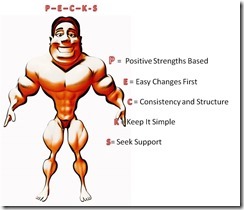
Damage to the brain, causes egocentricity. It is a common cognitive outcome after brain injury, and one that can be very difficult for family and others to cope with.
If you are supporting people with brain injury it is more than likely you will come across egocentricity.
In a Family Studies Project asking families about what kind of problems they had (conducted by the Research and Training Center on Brain Injury, at the State University of New York, Buffalo) , they found 61% of people with brain injury were reported as “… occasionally self centred”1
Egocentricity, is often described as “it’s all about me” because a person seems focussed on themselves when it’s the brain injury talking.
What does egocentricity look like?
Egocentricity affects a person’s ability to notice things, to put themselves in another person’s position, which means they may not see the needs of others.
This may cause a person to seem more self centred, selfish, not able to care about other people’s feelings or needs. A person who is egocentric as a result of brain injury, may not be able to put themselves in other person’s shoes and show empathy, even towards their partner or close family.
A person may seem less able to listen to others, and appear to be mainly focussed on their own thoughts and feelings. At times a person may appear jealous of others, to push to get attention, even their own children or grandchildren.
Why does egocentricity happen?
Think about what a person with brain injury has been through, and is going through.
Think about the focus and energy a person with brain injury needs to put into thinking, and making it through each day.
Think about that human survival tactic that focuses each of us on our survival when we are challenged.
All of this can cause a person to become focussed on ourselves and our own survival.
Often associated with frontal lobe damage, there are all kinds of changes in the function of the brain can that combine to create egocentricity. Think for a minute, and list what you need to do to have empathy with others? What steps do you go through to be concerned, to care about others?
Check out your list with the following points – add any others you can think of:
- The ability to be able to imagine yourself in another person’s place.
- Show with facial expression and body language your understanding and empathy.
- Being able to understand and critique your own behaviour e.g. “I am being selfish here.”
- Think through, be sensitive and appropriate in the way you tell other people what your needs are.
- To have awareness of your own emotions and emotional responses to others.
- Be able to weigh up all sides of any action or outcome, and combine the information to make a decision about how to act
- Be able to remember different experiences, people, and outcomes from the past. “Last time I talked about grandma the children became upset. I had better not mention her today.”
- Be aware of and understand other peoples emotions and emotional responses “Oh he is crying, that means he might be upset.”
- Take on board and process what others think, feel and say. “When Mary said ‘I need you to support me today, I am tired and can’t cope with the kids.’ That probably means I need to find out how best to make it easier for her.”
- Be able to ask appropriate questions to find out about other people’s thoughts and feelings. “You seem upset can I do anything?”
- Be able to listen and understand what you hear
- To be able to wait and be patient. “Mum is really busy right now, I better wait before I ask for her attention”
That is quite a list of things you need to be able to do to put yourselves in another person’s shoes. Consider that changes in any of these skills and tasks, or any combination, could create egocentricity, making it difficult for a person to understand, and respond to the needs of others.
The following video is about childhood development. About the time during their development when children are egocentric. I include it here, as it does give a very visual picture of what ‘egocentricity’ looks like.
Strategies to help address egocentricity:
The following is a brainstorm list of all kinds of strategies that might be helpful. Discuss with the person you are supporting, their family and team to decide which might work better. Which are worth a try?
Remember to start with strategies and changes the person is interested in, and do not try to change too much, all at once.
- Think very carefully about your own reaction. Examine your own motivations and feelings closely. Often it is so much easier to respond to a person who is grateful, and who appreciates our efforts. We often do not react well to those we think are being “selfish”. Can you change your own behavior and approach to better assist the person who appears to have egocentricity.
- No matter how frustrating it becomes, remind yourself egocentricity is because of damage to the brain. Work hard not to take it personally.
- Try to understand why egocentricity is happening. Which of the tasks we need to be able to do to show empathy and understanding (listed above) might be creating difficulties? What skills can you help to build up and support any of these tasks?
- Talk about, role play and explain situations from the other person’s point of view, both after situations occur and as potential examples.
- Revisit and act out situations that have occurred – reinforce things like taking turns, the correct way to respond, and the appropriate social skills needed.
- Practice, practice, practice – situations that are coming up and that have past. Provide a briefing: What is happening for other people who will be involved. Practice asking about others. As much as possible practice where they happen in the real world.
- Find consistent, simple strategies that assist a person to stop talking about themselves. Maybe a script or timed response. Something that works and fits with the person. E.g. Gemma was great at keeping time and worked hard to learn short scripts. Her strategy was to time herself for about 3 minutes and say “Enough about me what about you”.
- Ask questions to encourage thinking about others like: “What do you think X’s feelings and thoughts might be? ’”What does it mean when someone starts to look away from you and start talking to someone else?”
- Give lots of positive feedback and encouragement. Notice when things go well and say so. Describe examples of when there was consideration for another, when appropriate responses were made, when there was understanding of another person’s feelings.
- Give feedback and gently, clearly explain what happened when a situation was not OK. What was not OK, and what would the appropriate behavior or response have been. Remember that often a person who has egocentricity is not able to evaluate their own behavior so the feedback needs to come from others.
- Be sensitive, support and assist family to live with the egocentricity and to understand that the behaviour and responses are not deliberate.
1 Willer, B. Linn, R.T. “Practical Issues in Behaviour Management for Family Members of Individuals with Traumatic Brain Injury.” Neuro-Rehabilitation, 3 (2) 40-49, 1993. Andover Medical


Pingback: Contributing after Brain Injury. - Changed Lives, New Journeys
Pingback: Changing Emotions After Brain Injury - Changed Lives New Journeys
Pingback: Behaviour in Brief - Challenging Behaviour After Brain Injury - Changed Lives New Journeys
Pingback: Brain Injury Misunderstood - Up Close and It's Very Personal - Changed Lives New Journeys